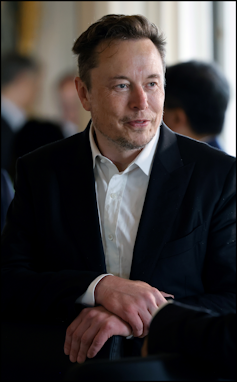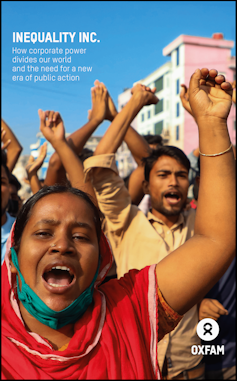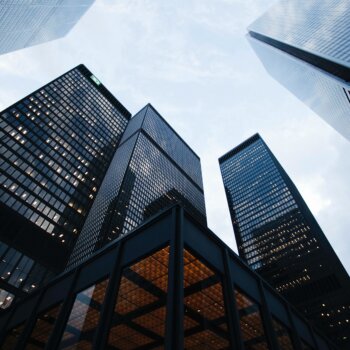Key Takeaway:
Oxfam International’s annual report on global inequality reveals that the wealth of the world’s five richest billionaires has more than doubled since the start of the decade, while 60% of humanity has grown poorer. The report, entitled “Inequality Inc,” shows that billionaires own $3 trillion more than they did three years ago, meaning their wealth has grown at three times the rate of inflation. Even in Australia, the wealth of billionaires has climbed 70%. Progress in Africa has stalled since COVID, and many wealthy countries are feeling left behind. The report suggests that direct government intervention to reduce inequality, including reasserting the roles of governments as regulators and service providers, could be a reasonable set of fresh ideas.
Gathering for their annual World Economic Forum at Davos in Switzerland this week, the world’s business and political elite will be digesting some unpleasant reading courtesy of the aid agency Oxfam International.
Oxfam’s annual report on global inequality released this morning shows the wealth of the world’s five richest billionaires has more than doubled since the start of the decade, while 60% of humanity has grown poorer.
Among the findings of the report entitled Inequality Inc are that
- billionaires own US$3 trillion more than they did three years ago, meaning their wealth has grown at three times the rate of inflation
- even in Australia, the wealth of billionaires has climbed 70%
- five billion other people can’t afford what they could three years ago.
Progress in Africa, which seemed promising for much of this century, has stalled since COVID.
And large parts of the populations in wealthy countries, feeling left behind, have been lured by the appeal of rightwing populism – ironically, largely promoted by billionaires and their advocates.
Dreams of Davos past
This isn’t how things were supposed to turn out.
In its glory days in the 1990s, the Davos forum was the driving force promoting the idea of stakeholder capitalism in which corporations controlled by shareholders were supposed to advance the interests of everyone who had a stake in their activities: workers, consumers, communities and the environment.
The Forum still promotes the idea on its website.
Back then, as communism collapsed, everything seemed possible.
Pundits like Thomas Friedman spoke of a golden straitjacket in which universal prosperity could be achieved if only the world embraced liberal capitalism, overseen by an electronic herd of fund managers making investment decisions.
With appropriately-constrained policies, governments could ensure a rising economic tide lifted all boats.
In the UK and the US the so-called Third Way policies of Tony Blair and Bill Clinton were seen as delivering capitalism with a human face.
Three decades on, that vision is looking increasingly threadbare.
From the left, there is increasing pressure for radical alternatives; from the right, there is increasing pushback against the Forum’s brand of “woke capitalism”.
Financial managers remain as powerful as ever, but in the aftermath of the global financial crisis and multiple exposures of criminal wrongdoing by their firms, there is less and less faith in their beneficence and collective wisdom.
Billionaires are becoming the problem
Billionaires were not important enough to be seen as a major problem back in the early 1990s. In 1991, as communism collapsed, Forbes Magazine assessed the total wealth of the world’s five richest people at less than $US70 billion.
And the most prominent billionaires at the time were relatively appealing figures like Bill Gates and Warren Buffett.
But since then, while US prices have doubled, the wealth of the top five has climbed tenfold. And they have become less interested in the idea that others should benefit from the system that has benefited them.
A case in point is Jeff Bezos who is number three on the rich list with net wealth of US$114 billion and runs Amazon whose brutal working conditions and anti-union stance are detailed in the Oxfam report.

Another is Elon Musk, number two on the rich list with US$180 billion, who could once have been seen as merely eccentric, but his recent embrace of neo-Nazis goes further.
And, appropriately for what Oxfam calls the gilded age of division, another is the very richest man in the world, Bernard Arnault, whose family owns luxury goods brands including Louis Vuitton and Sephora.
Arnault embodies the resurgence of what Thomas Piketty has called patrimonial society.
He took over the management of his father’s business and intends to pass his business on to his sons.
All have benefited from what is sometimes called neoliberalism: the mix of ideas including privatisation, financial deregulation and tax cuts that was meant to deliver stakeholder capitalism.
What neoliberalism has given us instead is greater division – something the billionaires gathered at Davos ought to consider this week as they reminisce about forums past.
A reasonable set of fresh ideas would be that put forward by Oxfam: direct government intervention to reduce inequality including but not limited to reasserting the roles of governments as regulators and service providers abdicated on the advice of gatherings such as the one in Davos.






























